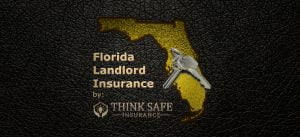Landlords: If you have rental properties in unincorporated Hillsborough County, then this message is for you! Are you going to be in compliance July 1? Do you know why this date is important?

Tenant’s Bill of Rights: Overview
On March 3, the Hillsborough County Board of County Commissioners passed the Tenant’s Bill of Rights Ordinance. This includes requires regarding:
- Notice that must be given to all applicants
- Source of Income Anti-Discrimination (Guidelines for applicants that have assistance vouchers)
- Notice of Late Fee requirements
The Tenant’s Bill of Rights ordinance will be enforced starting July 1, and there is a $500 fine for violations. Make sure you familiarize yourself with this law, so you are in compliance before July 1.
*We aren’t legal representatives. If you have questions about the interpretation or application of this ordinance, you should review it with the county or your legal team.
Notice for Applicants
To comply with the Hillsborough County Tenant’s Bill of Rights, you must give this notice to all applicants and existing tenants. This does not apply to AirBNB or short-term rentals. See part 3. (a) & (b):
“(a) It shall be unlawful for a Person to allow a Tenant to apply to rent, or in instances where no application is required, to occupy, a Rental Unit under said Person’s control or authority without first providing the Tenant with a copy of the Notice of Rights.
(b) For existing Tenants already occupying a Rental Unit as of the date of enactment of this Article, the Notice of Rights shall be provided prior to the commencement of a new rental term. For Tenants with rental terms of 30 days or less, the Notice of Rights shall be provided prior to initial commencement of the rental term and thereafter no less than once per year. Notices are not required for short term rentals with non-recurring rental terms of 30 days or less.”
Source of Income
The Tenant’s Bill of Rights states that you can’t discriminate against lawful sources of income. You can still have an income requirement, but it can only apply to the portion of the rent that the applicant would be responsible for.
What is Lawful Source of Income?
“Lawful Source of Income shall mean income from:
1) a lawful profession, occupation or job;
2) any government or private assistance, grant, loan or housing assistance program or subsidy, including but not limited to Housing Choice (Section 8) Vouchers and Veterans Affairs Supportive Housing (VASH) Vouchers, Social Security, and Supplemental Security Income;
3) a gift, an inheritance, a pension or other retirement benefits, an annuity, trust income, investment income, alimony, child support, or veteran’s benefits; or
4) the sale of property or an interest in property.”
What is Prohibited?
“(a) It shall be unlawful and is hereby prohibited for any Person:
(1) To refuse to rent, show or lease, to refuse to negotiate for the rental of, or otherwise to make unavailable or deny, a Rental Unit to any Tenant because of that Tenant’s Lawful Source of Income, or because of the Tenant’s status with regard to a public assistance program, or because of any requirements of a public assistance program.
(2) To discriminate against any Tenant in the terms, conditions, or privileges of the rental or lease of a Rental Unit, or in the provision of services or facilities in connection therewith, because of that Tenant’s Lawful Source of Income.
(3) To use a financial or income standard in assessing eligibility for the rental
of a Rental Unit that is not based on the portion of the rent to be paid by the
Tenant in instances where there is a government rent subsidy which will be
used to pay for a portion of the rent.
(4) To represent to any Tenant because of the Tenant’s Lawful Source of
Income that any Rental Unit is not available for inspection or rental when
such Rental Unit is in fact so available.
(5) To make, print, or publish, or cause to be made, printed, or published, any
notice, statement, or advertisement with respect to the rental of a Rental
Unit that indicates any preference, limitation, or discrimination based on a
Lawful Source of Income, or an intention to make any such preference,
limitation, or discrimination.
(6) To induce or attempt to induce another Person, for profit, to rent any Rental Unit by representations regarding the entry or prospective entry into the neighborhood of a Tenant with particular Lawful Sources of Income”
Notice of Late Fees
You are required to give written notice to the tenant prior to a late fee being applied based on the Tenant’s Bill of Rights Ordinance. You have to do this each time a fee is applied, but not for continuations of the same late fee.
(a) It shall be unlawful for any Person to assess a Late Fee against a Tenant without first providing written notice to the Tenant, against whom the Late Fee is assessed, for each Late Fee assessed.
(b) This written notice shall be separate from any notice requirements provided for in a Rental Agreement, and shall be required each time a new Late Fee is assessed. Only one notice shall be required if the same Late Fee continues to accrue after delivery of the notice.
Tenant’s Bill of Rights: Conclusion
There is more to this Tenant’s Bill of Rights ordinance, and more to each of the above sections. These are just kind of some quick bullet points. A link to the full ordinance is included below.
Our team at Florida Landlord Insurance and Think Safe Insurance have been following this Hillsborough County Tenant’s Bill of Rights Ordinance. It seems like the intention is good, but it may not be entirely practical. I think landlords may run into issues with vouchers and various assistance requirements, which is what leads many to avoid them in the first place. Maybe this requirement will help the agencies be more efficient in the future.
These types of regulations are why it’s important to be involved with your local governments. I know Lakeland had some unfriendly landlord laws proposed a few years ago and various groups including PCREIA were involved and helped shape the direction of those discussions with the city.
For those of you in other counties, do you have any similar requirements? Does this type of thing concern you as a landlord? Leave a comment below to let us know what you think.
To see the full ordinance and required notice, visit: Full Site

